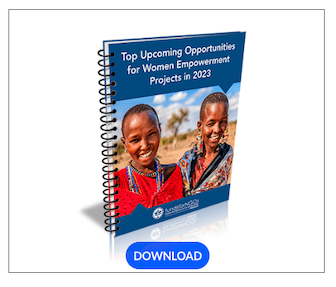
Deadline: 22-Feb-23
Applications are now open for the Young African Leaders Programme (YALP) of the European University Institute (EUI) School of Transnational Governance (STG) that provides a unique opportunity for aspiring leaders from Africa to further develop their policy work and professional skills amidst international experts and global leaders.
In the dynamic academic environment of the European University Institute (EUI) in Florence, selected participants will take part in seminars, trainings and skills development sessions, conferences, and study visits in Europe. Interaction with the other fellows, policymakers and the academic community at the EUI will make this a highly enriching experience. The fellowship is a full-time and fully-funded programme.
Programme Structure
The programme will be structured as follows:
- Executive Training Seminars, on thematic issues;
- Professional development workshops, providing a set of leadership skills, tools and concrete case studies;
- Study visits to international organisations and EU institutions;
- Final individual written assignment;
- Award of the YALP certificate of attendance;
- Connection to network of scholars and practitioners knowledgeable in relevant transnational governance.
- The exact schedule will be made available in due time for those applicants that are selected.
Conditions of Award
- Duration
- The Young African Leaders Programme has a duration of 3 months: September to November 2023. During this period, the fellows are expected to commit to the programme full-time.
- Residence
- Fellows must reside in the area of Florence for the duration of the fellowship so that they can take an active part in the activities of the EUI-STG and the fellowship (with the possibility of short visits outside Florence and Italy as part of the programme). The fellowship cannot be carried out remotely/ online.
- Grant
- The basic grant is € 2,500 per month.
- Successful applicants who receive other grants or salaries must disclose this to the EUI. The amount of the fellowship will be fixed at a lower rate (minimum €1,750 per month) depending on the amount of the additional income (upon production of relevant supporting documents).
- Family Allowances
- A household allowance of up to € 300 per month is paid to a fellow with a partner if the partner lives with him/ her in Florence and on the condition that the partner’s income is less than € 2,000 per month. The sum of income and allowance cannot exceed € 2,000 per month (i.e. if the income is more than € 1,700, the allowance will be paid only to top up to € 2,000).
- An allowance of € 200 per month is paid for each dependent child. Fellows are entitled to these allowances if they can declare that they are not receiving any similar allowance from another source, and upon submission of relevant supporting documents (i.e. marriage or partner certificate, or proof of cohabitation in Florence; birth certificates).
- For dependent children in full-time education and over the age of 18, a school or university certificate is required. No allowance is paid for dependent children over the age of 26.
- Taxation
- The fellowship is not taxed by the EUI. Fellows are, however, required to comply with any other tax provisions which may be applicable to them.
- Medical Insurance
- Fellows must have adequate medical insurance coverage during their stay at the Institute. They can either provide proof of their own insurance scheme, or subscribe to the EUI’s private sickness and health insurance scheme at their own expense.
- Travel Expenses
- Fellows (but not their families) receive a contribution towards their travel expenses for the incoming trip from their place of origin to Florence, and for the outgoing trip to their destination at the end of their fellowship. Fellows are responsible for organising their own travel. The subsequent travel reimbursement from Africa to Florence amounts up to €1,200, including both incoming and outgoing trips. Taxi expenses are not reimbursed. Eligible expenses are:
- First-class rail (travel by car is also reimbursed on this basis)
- Economy class air fare
- Fellows (but not their families) receive a contribution towards their travel expenses for the incoming trip from their place of origin to Florence, and for the outgoing trip to their destination at the end of their fellowship. Fellows are responsible for organising their own travel. The subsequent travel reimbursement from Africa to Florence amounts up to €1,200, including both incoming and outgoing trips. Taxi expenses are not reimbursed. Eligible expenses are:
- Removal/ Re-installment expenses
- There is no provision for removal or installation expenses.
Eligibility Criteria
- The fellowship is open to mid-career professionals and executives under the age of 35 at the start of the programme on 1 September 2023. Women and people with disabilities will exceptionally be considered up to the age of 40 on 1 September 2023.
- Applicants need to be African nationals residing in Africa.
- Age, gender and disabilities
- The fellowship is open to mid-career professionals and executives under the age of 35 at the start of the programme on 1 September 2023.
- Women and people with disabilities will exceptionally be considered up to the age of 40 on 1 September 2023.
- Women and people living with disabilities will be given priority in the selection process.
- Language
- Applicants must be fluent in written and spoken English. English language proficiency is required for applicants for whom English is not their first language. The expected level of English proficiency is level C1 of the Common European Framework of Reference (CEFR).
- An English certificate is not requested as part of the application, but successful candidates may be invited for an interview in English and requested to provide a certificate/supporting document on registration.
- Work experience
- They are looking for mid-career, high potential policymakers, diplomats, and professionals from Africa, working in national and local authorities, regional, continental, international organisations and development partners, civil society organisations, academia, media and private sector, in Africa
- Potential beneficiaries should have at least seven years of relevant work experience.
- Nationality and residence
- Applicants need to be African nationals residing in Africa.
- Education and field
- Applicants must hold a master’s degree or higher qualification. They should be committed to contribute to strategic themes and policy areas relevant to transnational governance. These include climate change and resilience, gender empowerment, cross-border economic and resource governance, diplomacy, digital politics, trade and investment, education, science and technology, skill development, migration and mobility, humanitarian disasters such as pandemics, regional integration and regional governance, democracy and human rights, peace and security.
For more information, visit STG.
